What Types of Dogs Are Easy to Train
We all want well-behaved dogs. All dogs are trainable and many "bad" dogs are a product of poor training rather than inherent naughtiness, but there are still some dogs that are much easier to train than others. There's a reason that you often see Labradors working as guide dogs rather than Chow Chows.
So which dog breeds are easiest to train? We'll tell you (and explain why)!
What Makes a Dog Easy to Train?
When we talk about dogs that are easy to train, what do we mean? Dogs that are easy to train often have several specific characteristics:
- They are food motivated
- They enjoy being around people
- They can focus for at least a few seconds
When we say that dogs like shar peis or Afghan hounds are difficult to train, we generally mean that they aren't easily motivated by food and they don't seek out our human companionship.
Why is My Dog Hard to Train?
Training dogs that aren't particularly interested in food is much more difficult than training dogs that love all types of food.
It's hard to "pay" an animal for good behavior if she doesn't want what you're offering.
If you're working with an animal who is less interested in food, you'll have to up your game as a trainer. It's not impossible, but you might have to get creative using really tasty treats or even non-food rewards to motivate your animal.

If you're struggling to train your dog, look at what you're "paying" her with. In some cases, upgrading to a higher-quality, more drool-worthy treat can work wonders.
Even if your dog isn't food motivated, this doesn't mean that all hope is list. If she doesn't love treats, don't use them as a training reward and try a different incentive instead. I've trained dogs using tug, fetch, sleep, or freedom to chase a squirrel as rewards.
The bottom line is, if a zookeeper can train a giraffe or a hippo, you probably can train your dog.
Sometimes you've got to think outside the box or make things easier. When I'm training a new dog with a client, we often start with rewarding the dog for being near us and focusing on us.
These are easy wins for the dog, and gets her used to the work-and-reward system. Only then can we start training the dog new tricks or handy behaviors.
Easiest Dog Breeds to Train
Since dog breeds are closely genetically related, there are certain trends within breeds for trainability. All dogs are individuals, but in general, certain breeds are easier to train than others.
That's because ultra-trainable breeds originated from dogs that humans bred to be good at certain tasks, like listening to an owner's commands to properly herd sheep.
Dogs that were bred for herding (like Australian shepherds) are often particularly easy to train, while dogs that were bred for running or tracking (like huskies or bloodhounds) can be more challenging.
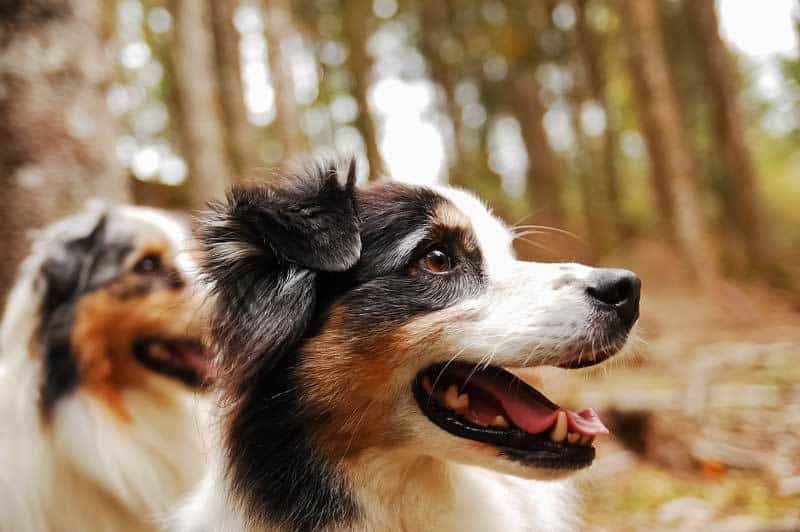
As a herding breed, Aussies are also bred for working off-leash with their owners in challenging environments. This natural focus on owners and skill for problem-solving puts them at the top of the list.
Many Aussies will happily sit in exchange for a toy or treat. Having a variety of ways to reward your dog can make training easier!
Like other herding dogs, some Aussies can be nervous with new situations – but many are easily socialized to be confident with strangers. They're also high-energy dogs that can be problematic when not given a job, so make sure you understand what you're undertaking when you adopt an Aussie!
- Food Motivation: 5 / 5
- Sociability: 5 / 5
- Focus: 5 / 5

Known for being extremely intelligent and almost irritatingly attentive, border collies top trainability lists.
Many border collies naturally pay attention to their owner to with an eerie focus, making them seem like mind-reading geniuses.
My border collie, Barley, has successfully trained many people to throw him a ball instead of petting him. That's how smart he is! Their trainability comes from their laser focus.
Their biggest weakness is that many border collies can be nervous of new people, places, and things.
Aside from that, it's important to give a border collie a job to use their boundless energy and intelligence on – otherwise they'll invent jobs for themselves, like separating feathers from pillows.
- Food Motivation: 5 / 5
- Sociability: 4/ 5
- Focus: 5 / 5
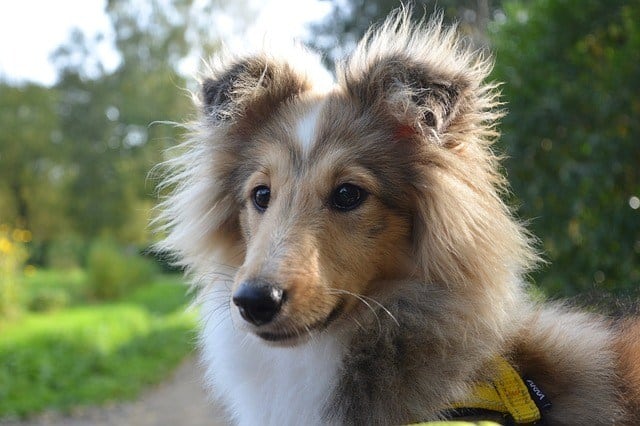
Yet another herding breed rounds out the top three!
Shetland sheepdogs are small, sensitive herding dogs. They naturally focus on their owners and are quick to pick up new training games.
Many Shelties are so sensitive to their environment that they border on fearful of new things and require careful socialization. Their coat is not easy to care for either, so keep that in mind before bringing home your new Sheltie.
- Food Motivation: 5 / 5
- Sociability: 4/ 5
- Focus: 5 / 5

As the first non-herding breed on the list, Dobermans can be surprisingly smart and attentive.
Since Dobermans were originally bred for helping tax collectors do their jobs without getting kicked out of town, they're naturally quite attentive and focused on their owners.
That said, Dobermans require careful training and socialization to ensure that they're tolerant of strangers. They're a favorite of dog trainers who enjoy quick wit and intense focus.
- Food Motivation: 4 / 5
- Sociability: 4 / 5
- Focus: 5 / 5
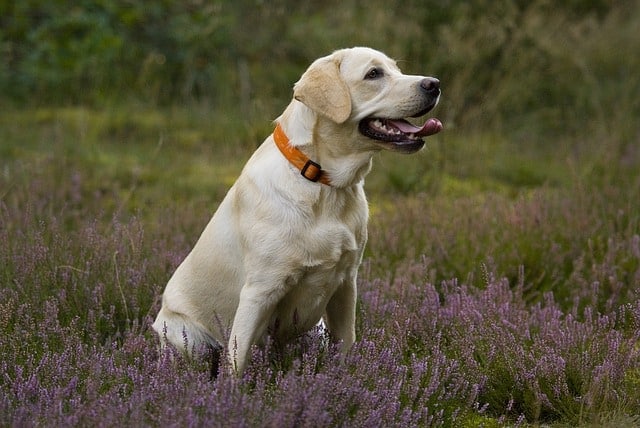
Labs have a gentle disposition and are naturally affable with strangers, making them the hands-down best choice for the average home and family (and the most popular breed in the U.S.).
Their intense food motivation stems from a genetic quirk that makes them not feel full even when they are.
As a duck hunting dog, a well-bred Lab should be able to work off-leash with his owner in the water and on land and remain unperturbed by gunshots and strangers while hunting. Keep that in mind before bringing home a high energy dog.
If you aren't a regular hunter, you'll have to come up with other creative ways to keep your new Labrador well-exercised!
- Food Motivation: 5 / 5
- Sociability: 5 / 5
- Focus: 4 / 5
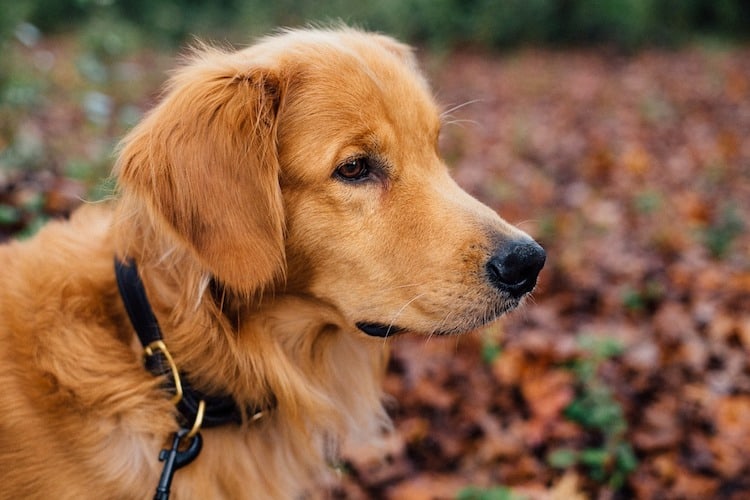
Anecdotally, trainers I've spoken to have noticed that more goldens show concerning resource guarding behavior than other breeds. There's a chance that there's a genetic predisposition to this behavior problem in the breed, which is why they're a step lower than Labs on this list.
- Food Motivation: 5 / 5
- Sociability: 5 / 5
- Focus: 4 / 5
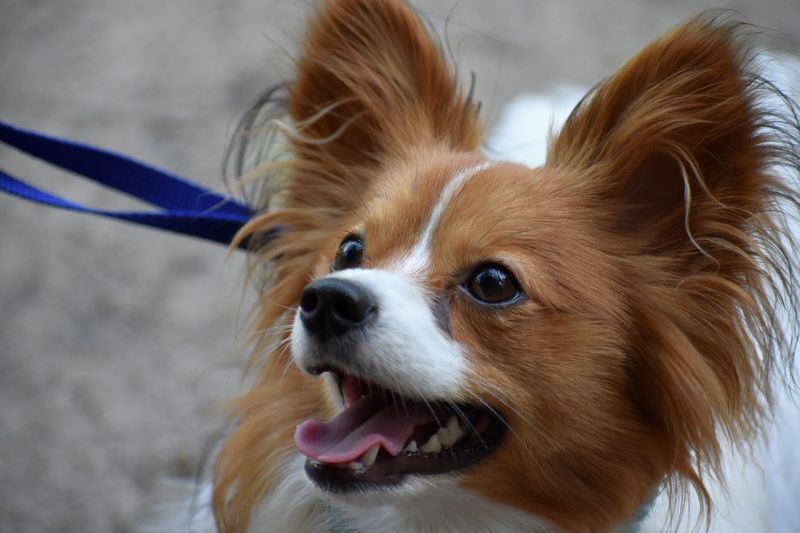
As the smallest dog on the list, the papillon is often overlooked. These little dogs are incredibly smart and trainable, with natural focus and sunny disposition.
Many dog trainers love training papillons for agility, since they're a bit easier to live with than a high-strung herding dog. Their adorable face and tiny size certainly helps!
- Food Motivation: 5 / 5
- Sociability: 5/ 5
- Focus: 4 / 5
8. Belgian Malinois
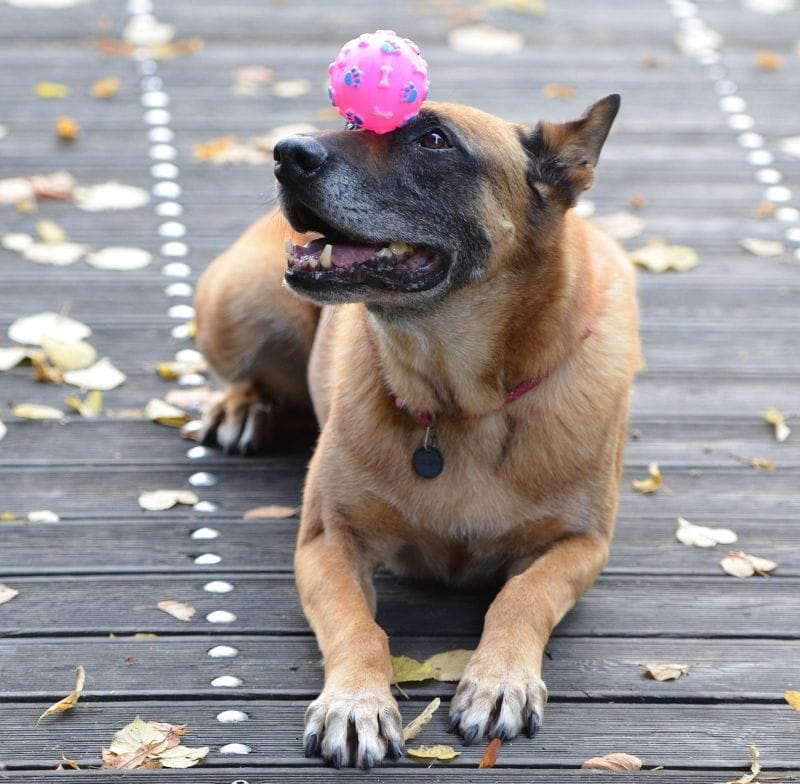
The Belgian malinois is not a breed for the faint of heart. These dogs are literally bred to take down bad guys – by biting them. These incredibly smart, responsive dogs are popular in many dog sports. However, their impressive feats of athleticism and iron willpower can make them very difficult to live with.
As puppies (and adults), "mals" often are very bitey. Without a skilled owner who knows how to harness this drive for good, many malinois end up in the shelter. Most are obsessed with toys and have a strong "oral fixation" to have things in their mouths. Skilled trainers often love training these smart, receptive, athletic dogs.
Strong toy training skills and the ability to break down skills into small parts are a must for malinois owners. If you're not interested in a dog who's ready and willing to do police work, you might not be quite up for a mal.
- Food: 5 / 5
- Sociability: 5 / 5
- Focus: 5 / 5
9. German Shepherd
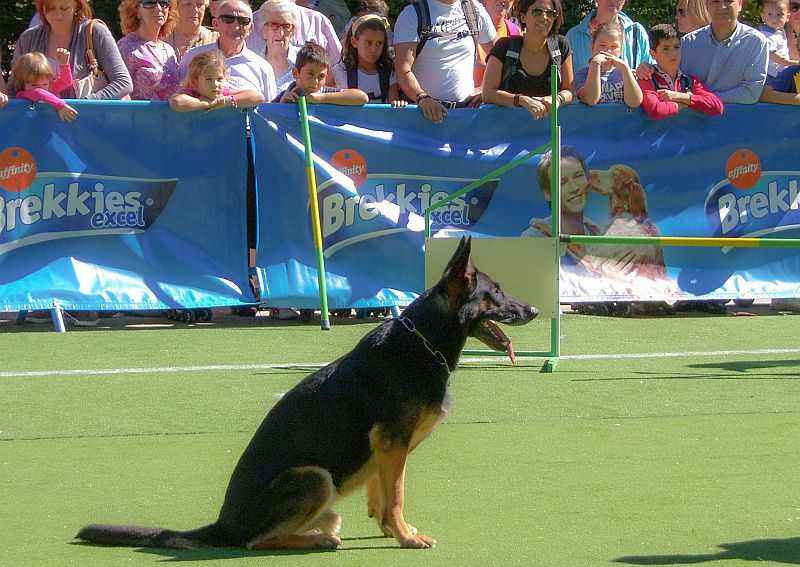
There's quite a bit of variety in the German shepherd breed nowadays. While German shepherds were originally bred for police and military work, the breed exploded in popularity. If you're looking for an easy to train, smart, athletic, loyal dog, the working-line German shepherds can be amazing companions. That doesn't mean they're easy to live with – but they're certainly bred to work!
Many German shepherds love toys and are easily trained for everything from competitive obedience to service dog work to agility. These smart dogs like being part of a team with you, and do best when given clear training and directions.
One major downside of looking for a German shepherd is that it's a fine line between "suspicious of strangers" (a necessary trait for many protection dogs) and flat-out anxious. While a well-bred and well-raised GSD is one of my all-time favorite dogs, shelters around the country are full of overly anxious, poorly-bred shepherds.
Do your research and meet the parents, aunts, uncles, cousins, and older half-siblings of a puppy before purchasing or paying a deposit. Leash reactivity and aggression towards strange people and dogs is sadly common in this breed.
- Food: 4 / 5
- Sociability: 3 / 5
- Focus: 5 / 5
10. Rottweiler

While Rottweilers don't dominate the world championships in many dog sports, they're nevertheless a very intelligent breed. They're a bit more moderate in energy level and generally less anxious than many of the herding breeds on this list. Of course, Rottweilers are still large, powerful dogs that love to play hard!
Rottweilers do well at competitive obedience and can be taught to do almost any other task. They are usually chow hounds that work happily for any treat. And who could resist training with a block-headed wiggle-butt?
Anecdotally, many Rotties seem to struggle with resource aggression. They might not do well in homes with kids for this reason — plus they often don't know their strength during playtime!
- Food: 5 / 5
- Sociability: 4 / 5
- Focus: 4 / 5
11. Poodles
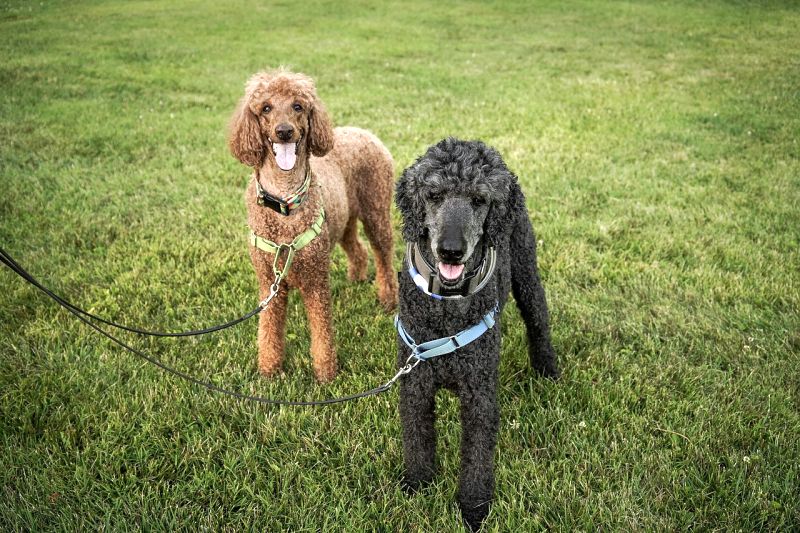
Poodles of all sizes are incredibly smart and easy to train. These responsive dogs excel at agility, obedience, and hunting trails. Don't let the funny hairdos fool you! Poodles are excellent working and training partners.
One of the lovely things about poodles is that it's relatively easy to find a poodle that's the right size for your family. Keep in mind that poodle crosses (all the doodle-mixes out there) are mixed breeds, which means that they might not have the brains of a typical poodle.
Some poodles can be quite sensitive or anxious, like the other herding dog breeds on this list. They do well with gentle, clear training as harsh techniques or sloppy, unclear training can overwhelm them.
- Food: 4 / 5
- Sociability: 4 / 5
- Focus: 5 / 5
A Word of Warning
Before dashing out to your nearest Australian shepherd rescue, heed my warning: Incredibly smart dogs are not necessarily easy to live with.
Many of the smartest dogs on this list are easy to train, but also get bored easily. Bored dogs often make up games or anxiously destroy things. It's a constant give and take between my border collie and me to ensure that he's properly entertained so he doesn't destroy my home.
If you're not ready for lots of activity and heavy-duty training, skip the herding dogs on this list and opt for a retriever instead. Better yet, check out our list of best and worst dog breeds for first-time owners.
***
Think we missed an easy to train dog? Let us know! We want to hear about your training dream dog!
Source: https://www.k9ofmine.com/easiest-dog-breeds-to-train/
Enviar um comentário for "What Types of Dogs Are Easy to Train"